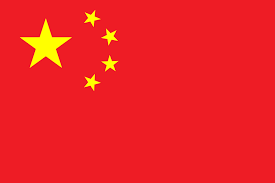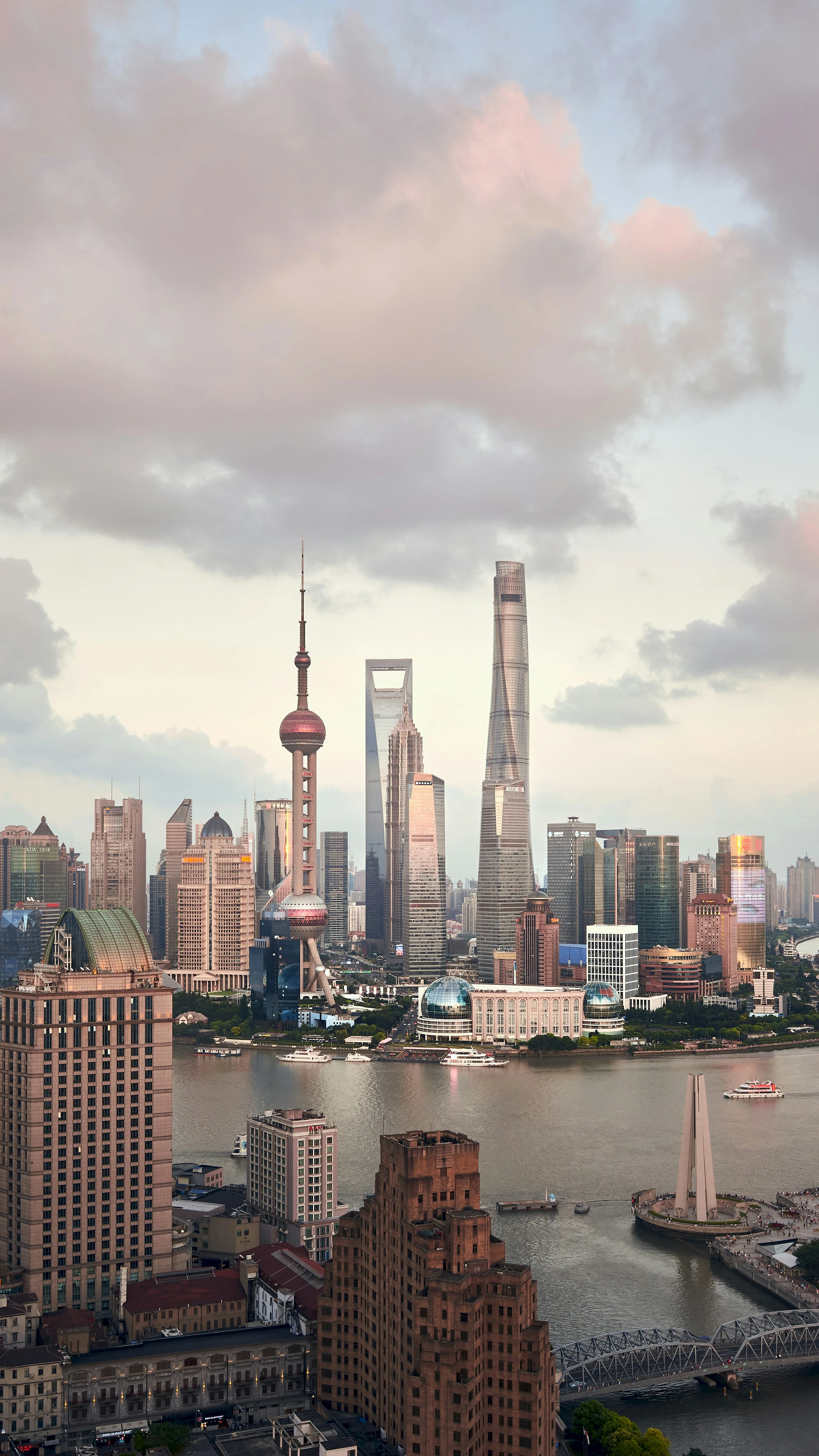
Fullhome China

 China, Shanghai
China, Shanghai
Shanghai is a city in the People's Republic of China, the most populous city in the world (with a permanent population of over 24,850,000), the world's largest seaport, the economic, political and social center of the region, and the main financial center of China. The fourth most important financial center in the world after New York, London and Tokyo. The city is located in the south of the country near the provinces of Zhejiang and Jiangsu. Shanghai has a subtropical climate with monsoon features and no rainy or dry season. The East China Sea is located to the east of Shanghai. The Huangpu River divides the city into two parts: the main urban areas are on the west bank, and the most prestigious business district of Pudong is on the east side of the river, which began to develop only in the 1990s, but is now one of the main financial and business centers not only in Shanghai, but throughout China. The Pudong area generates a significant portion of the country's GDP and contributes to about 6.5% of China's foreign trade turnover. It is home to the regional headquarters of more than 350 transnational corporations, and at least 36,000 international or foreign-invested companies are registered there. Pudong is home to both old neighborhoods with traditional houses and modern buildings that have become symbols of modern China. Pudong's most significant skyscrapers include the 632-meter-tall Shanghai Tower, the 492-meter-tall Shanghai World Financial Center, and the 421-meter-tall Jin Mao Tower. The most important sectors that ensure the economic well-being of Pudong are the financial sector (the district is home to the headquarters of many banks, other financial institutions, insurance companies, stock and commodity exchanges), trade, business tourism, industry (shipbuilding, automobile manufacturing, chemical and petrochemical industry, electronic and electrical industry, construction and real estate).
The city's population is growing rapidly, over the past 35 years it has increased by a quarter, largely due to internal migration from the neighboring provinces of Jiangsu and Zhejiang. New districts are being actively built in the city, the residential and commercial real estate sectors are developing, and numerous necessary urban infrastructure facilities are being built. The administrative division of the city provides for the presence of 16 districts. The economy of Shanghai is built on the successful functioning of the financial sector, industry, information technology, trade, tourism, food production and catering, agriculture, trade and construction. In many sectors, Shanghai is constantly competing with Hong Kong for the right to be the leader in the country. Shanghai was the site of the first stock exchange in mainland China, which is currently one of the world's major financial markets. The major Shanghai Futures Exchange and Shanghai Gold Exchange are also located here.
Leave a request for a free consultation from Domik.io specialists
We will offer you our services for selling real estate anywhere in the world.



 China, Shanghai
China, Shanghai


 China, Beijing, Shanghai, Hong Kong
China, Beijing, Shanghai, Hong Kong


 China, Shanghai
China, Shanghai


 China, Beijing, Shanghai, Hong Kong
China, Beijing, Shanghai, Hong Kong
The city is experiencing a boom in the construction industry. Hundreds of Shanghai developers work here, annually building new residential areas, numerous commercial real estate objects (warehouses, retail and industrial areas, office buildings). The majority of buildings erected in Shanghai are high-rise residential buildings. The city authorities are striving to develop the city taking into account the latest achievements in the field of ecology and improving the quality of life of citizens. Green areas and park complexes are actively developing in the city. Shanghai real estate is distinguished by good quality construction and a high cost per square meter of residential and commercial real estate. The city's real estate market is filled with several thousand Shanghai real estate agencies and thousands of individual real estate agents specializing in the city's real estate.
Qualified, experienced Shanghai real estate agents not only select real estate options in the client's budget that best meet the specified characteristics, but also ensure the legal purity of real estate transactions.
Every year, Shanghai is visited by more than 6,500,000 foreign tourists who visit numerous local historical, architectural, cultural and natural attractions. The city has an active business tourism industry, with many business districts of the city hosting thousands of corporate events annually, attracting hundreds of thousands of business people from Southeast Asia, Europe and North America. The city's most famous venues for international business events are the Shanghai International Conference Center, Shanghai World Expo Exhibition and Convention Center, Shanghai New International Expo Center, Pudong Expo Shanghai. The city is home to hotels of all the world's major hotel chains: The Ritz-Carlton, Kempinski, Hyatt, Four Seasons, InterContinental, Marriott and others. Shanghai is an important educational center of the region, with hundreds of thousands of international students studying here. The main higher education institutions of Shanghai are Shanghai Jiaotong University, Fudan University, Tongji University, East China Normal University, East China Polytechnic University. Shanghai has numerous attractions that attract tourists from all over the world. These include the Jade Buddha Temple, built in 1882, Longhuasi - the largest Buddhist temple in Shanghai with a seven-story pagoda, numerous Chinese gardens and five pavilions. History buffs will enjoy visiting Shanghai's numerous museums. Among them is the Shanghai Museum, opened in 1952, which amazes visitors with the richness and breadth of its exhibits. Numerous halls of the museum are dedicated to historical relics dating back to the Ming and Qing dynasties. Here you can admire works of art created in China and neighboring countries. Another famous museum is the Shanghai Science and Technology Museum, shaped like a flying saucer and opened its doors to visitors in 2001. The museum's territory is divided into five themes: the animal kingdom, earth exploration, technoland for children, light wisdom, and the cradle of design. Other popular tourist attractions include the Shanghai Tower, Shanghai Aquarium, the Bund, Shanghai Grand Theatre, Yu Garden, and Shanghai Oriental Art Center.
Investors considering buying property in China often decide to invest in residential or commercial properties in Shanghai. Investing in Shanghai real estate is suitable for investors who want to preserve or increase their financial assets. The city's real estate is well suited for short-term and long-term rental business, as the city has no seasonality and the occupancy rate of real estate properties is extremely high all year round. Despite the relatively high cost per square meter of residential and commercial real estate, its acquisition in Shanghai is a profitable activity, as its value increases annually, giving the opportunity to earn money on its resale after several years of ownership. Shanghai real estate properties are distinguished by high quality construction and finishing and are built in accordance with strict national and local building codes.
Experienced investors turn to real estate professionals - Shanghai real estate agencies - to find a suitable location and a reliable developer who delivers high-quality real estate properties on time. A professional, experienced realtor will not only accompany the process of buying real estate, but will also protect you from mistakes that lead to financial losses in the real estate sector.
On our website you can find ratings and reviews of Shanghai real estate agencies left by real estate buyers. Careful study of the reviews will allow you to form your own opinion about the advantages and disadvantages of real estate agencies, the level of qualification of specialists from different real estate agencies. This will allow you to make an informed decision about the possibility of cooperation with one of them.
To make a choice when buying real estate in China, you can check out the rating of real estate developers. And if you are interested in a specific location, then study the reviews of real estate agencies in China.


